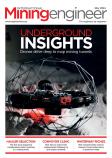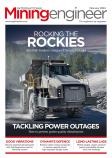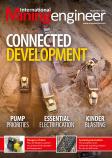Exploring coupling design for one of the world’s largest haul trucks
With their advanced torsional characteristics, spring couplings from Torsion Control Products (TCP) are designed for diesel engines used in construction machines, agricultural vehicles, industrial equipment, marine powertrains and mining equipment. For one of the world’s largest mining vehicles, TCP created a coupling with an extremely long lifespan.
The challenge: a massive engine for a massive truck
A long-time TCP customer faced a heavy challenge while producing one of the largest mining vehicles in the world: a 400-ton, gear-driven haul truck. The truck required 3,000-plus horsepower. To achieve this, it used a 12-cylinder engine bolted to a TCP coupling that was connected to the crank nose of another 12-cylinder engine. However, under these extreme operating conditions, the standard coupling design only lasted 250 hours.
The solution: a spring coupling that lasts
TCP engineers created a bespoke, re-buildable coupling to connect the engines, which was able to last over 20,000 hours. It tuned the system while meeting the manufacturer’s durability requirements. The customer went to market with a custom coupling solution that lasted longer and saved money with its re-buildable design. After nearly two decades, the customer continues to use the TCP coupling to this day.
“In mining equipment as well as in construction machines, agricultural vehicles, etc., couplings need to cope with ever more unusual installation spaces,” says Peter Jaschke from TCP. “The couplings must be adaptable to all possible conditions, such as narrow spaces in which heat accumulates and cannot dissipate due to the seals. Or they must be able to bridge large distances to other drivetrain components that cannot be installed near the coupling or engine.”
“In mobile machinery the goal is to use wide engine speed ranges so that the engine can always run at the ideal speed along its characteristic curve to maximise available power and minimise emissions. In modern diesel engines, the torque at low revs is ever increasing. This requires a perfectly matched coupling,” Jaschke explains. “Also, engines and machines are becoming ever lighter, resulting in more dynamic powertrains. The need to handle more power with smaller components is therefore inevitable. Lightweight construction also means higher vibration levels from the motor side and impact loads from the drive side. Isolating these resonances at both sides of the coupling is becoming ever more important.”
TCP’s spring couplings are especially suited to modern diesel engines that produce lower emissions and more power in smaller packages at lower operating speeds. They run reliably and attenuate drivetrain vibration even in the roughest of applications. With their Smart Damping system, the spring couplings can be tuned to supply damping only when needed and to isolate resonance when damping is detrimental. This reduces torsional spikes at startup, shutdown and transient events, which increases the coupling’s lifespan.
The range of spring couplings comprises various versions and covers a torque range from 27 to 27,000Nm.





















